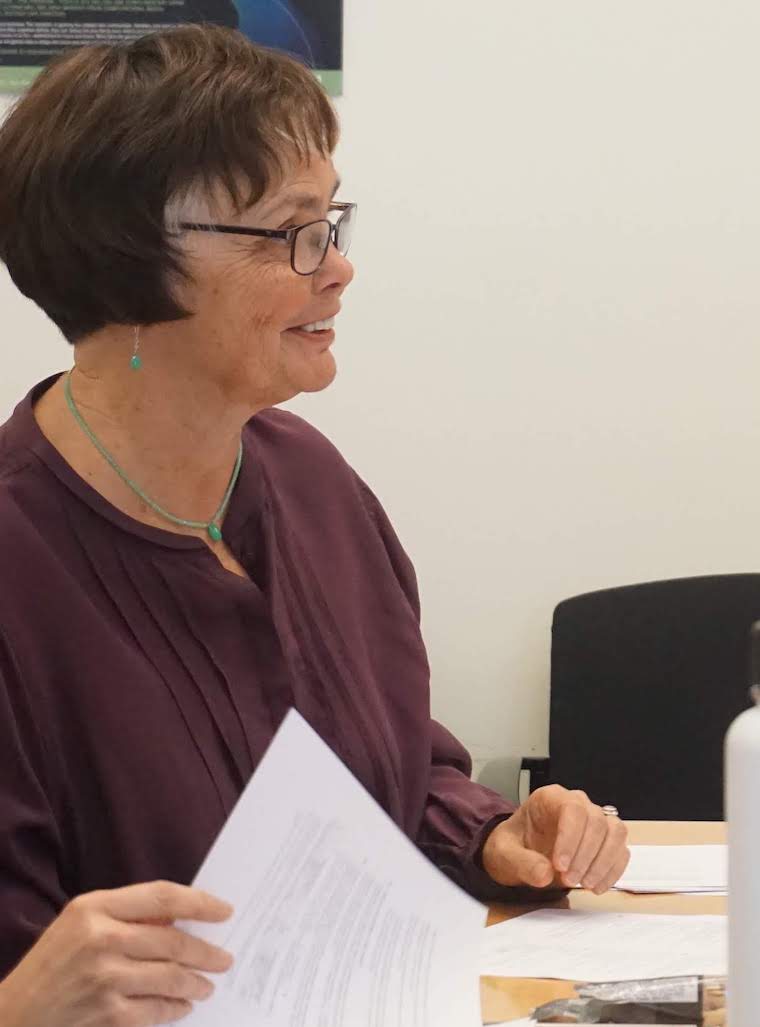2019 Farkas Retirement Celebration

The celebration honoring the retirement of Donka Farkas was held on Saturday, June 8, 2019 at the University Center Rotunda Room with many department's faculty, staff, family, and friends in attendance. Professor Emerita Judith Aissen emceed the event.
Judith Aissen:
Good afternoon, colleagues, friends, and family of Donka. And welcome to this event which both celebrates Donka's time at UCSC and wishes her well going forward. I feel a bit like Charon, called on to ferry my retiring colleagues to the land of shades, but in fact I regard retirement as quite the opposite and suspect that for Donka, her post-retirement life will be even more intellectually lively than her pre-retirement life has been.
Junko asked me to say a few words about Donka's career at UCSC, so I'll start with that. Donka joined the faculty in 1991. She was one of the final hires in the project of rebuilding the department that Jorge initiated in 1980. When Donka came, Tanya Honig was our department manager, Bill Shipley had, I believed, just retired, and it would be another year or so before Jaye Padgett arrived on campus. The faculty at that time consisted of five syntacticians (Jorge, Geoff Pullum, myself, Sandy, and Jim), two phonologists (Junko and Armin), and one semanticist (Bill Ladusaw). Our PhD program had been in place for five years and we clearly needed to augment the semantics side of the department. Donka was an excellent fit for the department as she shared the commitment that many others on the faculty had to bringing deep and careful empirical work to bear on questions of theoretical importance. Donka also added significantly to the cosmopolitanism of the department: she was a native speaker of several European languages, languages that she drew on in both her research and her teaching, and she had strong connections to linguistics in Europe. Her contributions to semantics over four decades include work on mood and scope; on nominal semantics, specificity and incorporation; on control; and on the structure of the discourse. In all these areas, her work has had significant and continuing impact on the field.
Louise McNally (
"Donka arrived at UCSC just in time to join my dissertation committee during my last year. At that time, not many linguistics departments had two formal semanticists (quite a few still had none), and I felt extremely fortunate when she arrived."
Chris Kennedy (
"One of the most difficult challenges of graduate school, in my opinion, is the challenge of figuring out how to move from the broad interests and big questions that pile up over the first three or so years of classes to a more focused set of questions, and a strategy for addressing them..."
I'd like to highlight three aspects of Donka's career which I think are distinctive and I'll start with a personal observation. Around 2009 or 2010, shortly before I retired, Donka and I co-taught a graduate seminar in micro- and macro-aspects of the speech context. So, during that quarter I had an extended opportunity to watch Donka teach. The aspect of her teaching that struck me most forcibly, that remains with me, was the way she responded to student comments. She had an unerring ability to turn almost every comment into a discussion of the larger issues at stake, and to a discussion of how the point raised by the student might be developed in order to bear on those issues. She spoke very directly, very clearly, and at length, so that there was no mistaking the point she was making. In short, she was a truly inspiring instructor.
It is little wonder then that she became the advisor to a significant number of outstanding dissertations, written by students who have gone on to make major contributions to semantics and pragmatics. Some of them have sent their eloquent expressions of thanks to Donka on this occasion.
